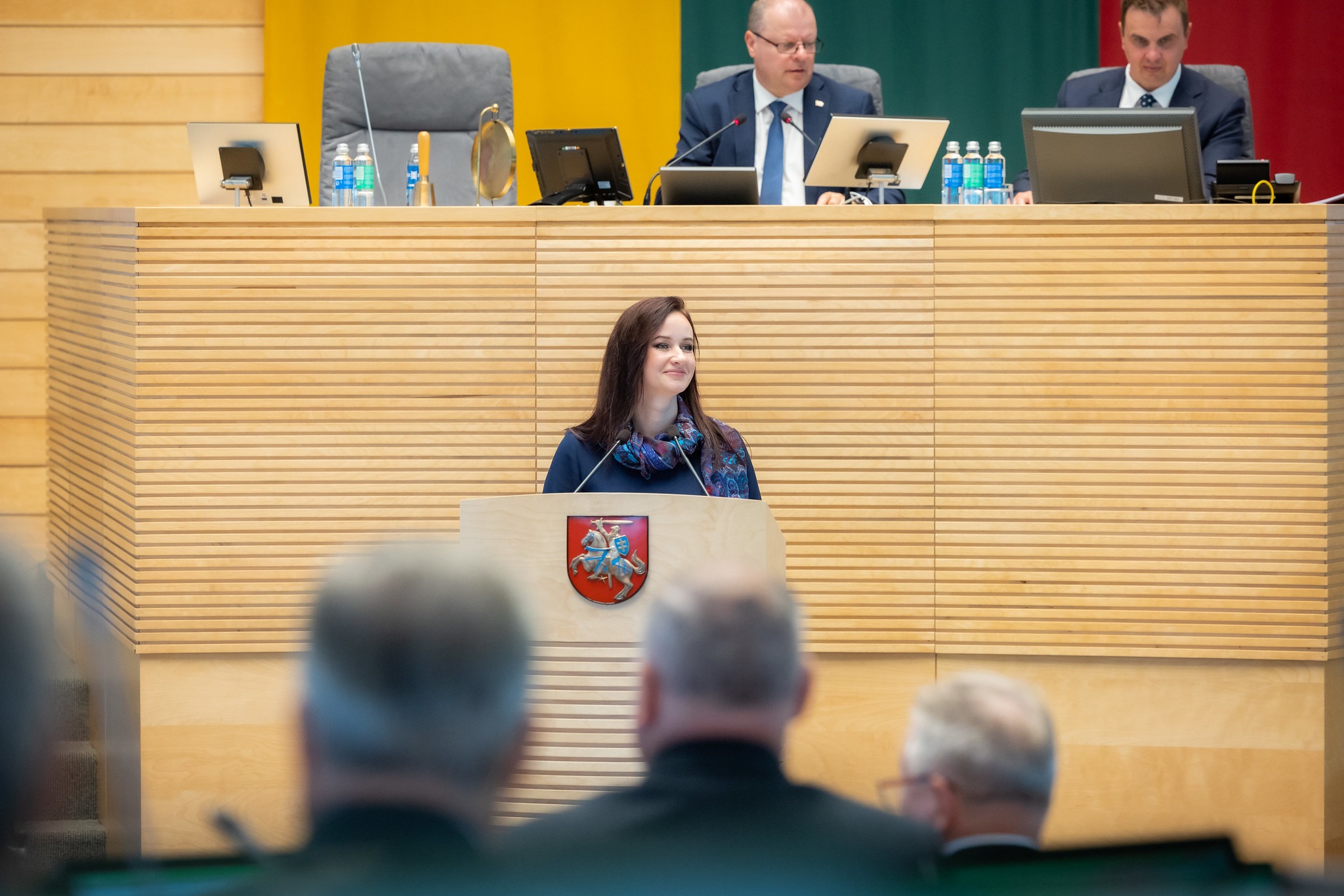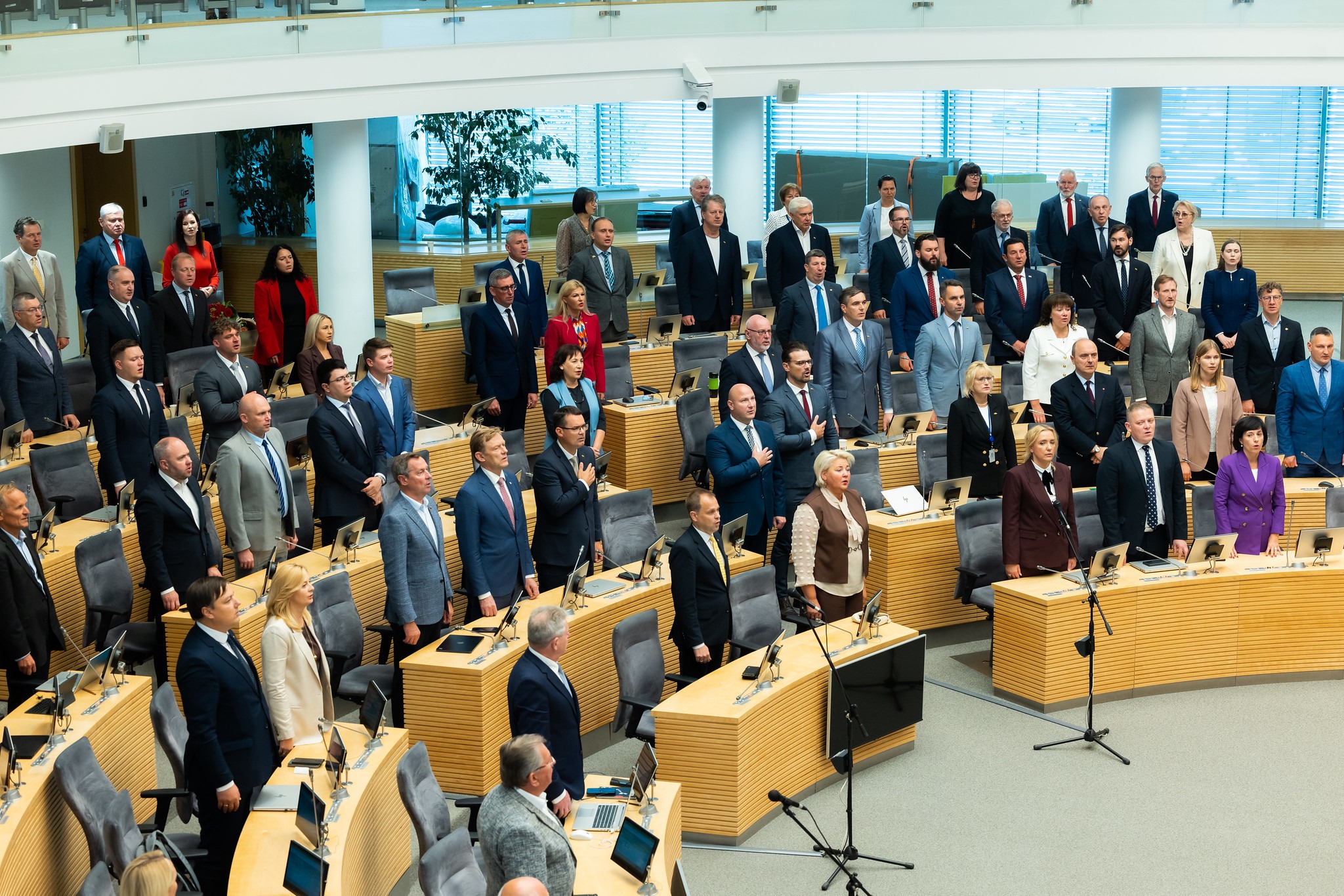Report
Estonia Weekly: Satirical “Olivier Salad Ban” Rumour Fuels Russophobia
Pro-Kremlin online voices in Estonia amplified both fabricated claims about cultural repression and criticism of long queues at the Narva border, framing these measures as evidence of “Russophobia.”
Weekly Reports
Estonia Weekly: Kremlin Denies Airspace Violations
Pro-Kremlin voices denied Estonia’s report of an airspace violation, framing it as a NATO provocation and amplifying nationalist rhetoric online. Meanwhile, some online commentators exploited domestic Estonian debates to push narratives about “Russophobia” and Western suppression of free speech.
Read moreLithuania Weekly: Kremlin-Aligned Media Exploit Drone Incident and Political Shifts
Over the past week, Kremlin-aligned media sought to inflame divisions in Lithuania by exploiting both international and domestic developments. NATO airspace security was undermined through claims that Russian drone incursions into Poland were staged provocations, while LGBT rights were framed as moral decline following Lithuania’s first legally recognized same-sex partnership. Meanwhile, the newly appointed MP Inga Ruginienė was promoted as a challenger to the so-called “conservative clan,” reinforcing narratives of political instability.
Read moreLatvia Weekly: Pro-Kremlin Channels Mock Air Defenses
Following the crash of 19 Russian drones in Poland, pro-Kremlin Telegram channels criticised Latvia’s defense preparations, using satirical imagery to mock the country’s military capabilities while simultaneously portraying defensive measures as endangering civilians. The messaging employed contradictory narratives that frame Latvia as both militarily inadequate and dangerously aggressive, exploiting regional security concerns to undermine confidence in government policies.
Read moreEstonia Weekly: Layoffs at Südalinna Theatre Amplified in Russian Media
Pro-Kremlin outlets played down Poland’s claims of Russian drone incursions. Meanwhile, a heated debate erupted over mass dismissals at Tallinn’s Südalinna Theatre. Critics have framed this as political pressure and alleged “Russophobic” policies.
Read moreLatvia Weekly: Pro-Kremlin Channels Exploits School Language Transition
Pro-Kremlin Telegram channels are targeting Latvia with inflammatory messaging that takes discussions about education in Latvian language and reframes them using extreme rhetoric and derogatory labels. The posts demonstrate how hostile narratives are constructed by taking real events and embedding them within provocative interpretive frameworks designed to foster negative perceptions of Latvian institutions among Russian-speaking audiences.
Read moreEstonia Weekly: Kremlin Propaganda Exploits Audit of Estonia’s Defence Ministry
Estonia’s Defence Ministry was criticized by the National Audit Office for major financial mismanagement, a finding amplified by pro-Kremlin commentators. Separately, a known Russian-speaking activist Andrei Vesterinen was declared wanted on fraud charges, which Kremlin-linked voices called politically motivated.
Read moreLithuania Weekly: “Day of Shame” Protest Exploited to Push Conspiracies About Elite Control
Over the past week, Kremlin-aligned media in Lithuania amplified the “Day of Shame” protest in Vilnius, portraying it as evidence of national unrest and societal collapse. Both the organisers and participants were targeted: accused of inciting chaos, mocked as “dim-witted” or “unemployed,” and discredited as representatives of genuine civic discontent. Central to these narratives was the revival of conspiracy theories about Lithuania being secretly controlled by the so-called “Landsbergiai clan,” a trope used to delegitimise public activism and suggest citizens are manipulated by hidden elites.
Read moreLatvia Weekly: Propaganda Portrays NATO Spending as Economic Suicide
Pro-Kremlin Telegram channels are framing NATO’s increased defense spending plans as economically self-destructive “hysteria” that will drive member nations into debt while cutting social programs, while simultaneously issuing direct military threats against Baltic states and dismissing their defenses as futile. The messaging exploits legitimate democratic debates about military spending and troop deployments to portray NATO as both an aggressive threat to Russia and an unreliable protector unable to defend its own members.
Read moreEstonia Weekly: Kremlin Propaganda Exploits Drone Crash to Undermine NATO
When a drone crashed in Estonia, Kremlin-aligned commentators seized the opportunity to question NATO’s defences and portray Estonia and Ukraine negatively. Meanwhile, Russian-language social media platforms have amplified domestic debates over tax policy and a statistical error, presenting them as further evidence of the incompetence of the Estonian government.
Read moreShowing 37 to 45 of 334 results
Don’t miss a story.
We publish stories that change laws, lives, minds and the world. Subscribe to our newsletter to get our investigations delivered to your inbox.







